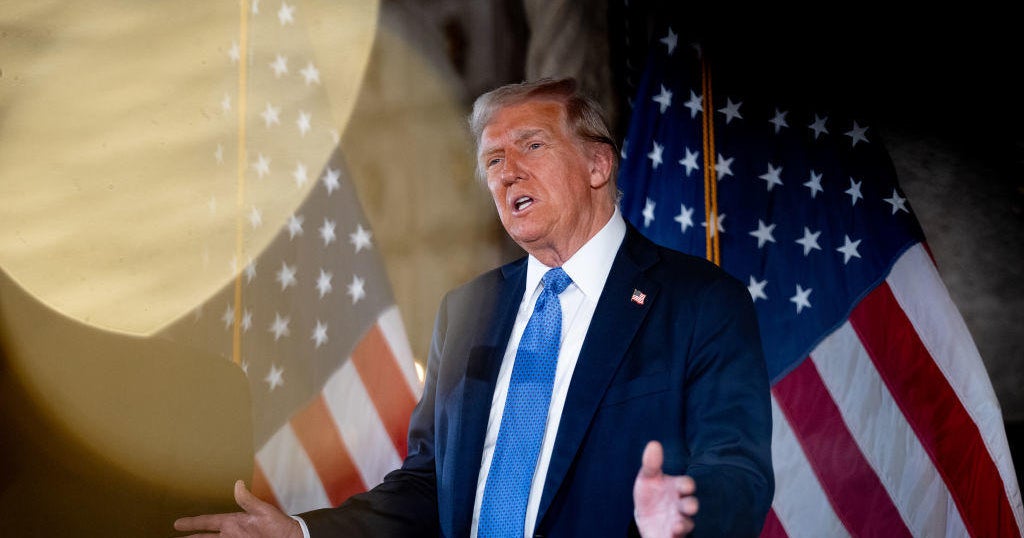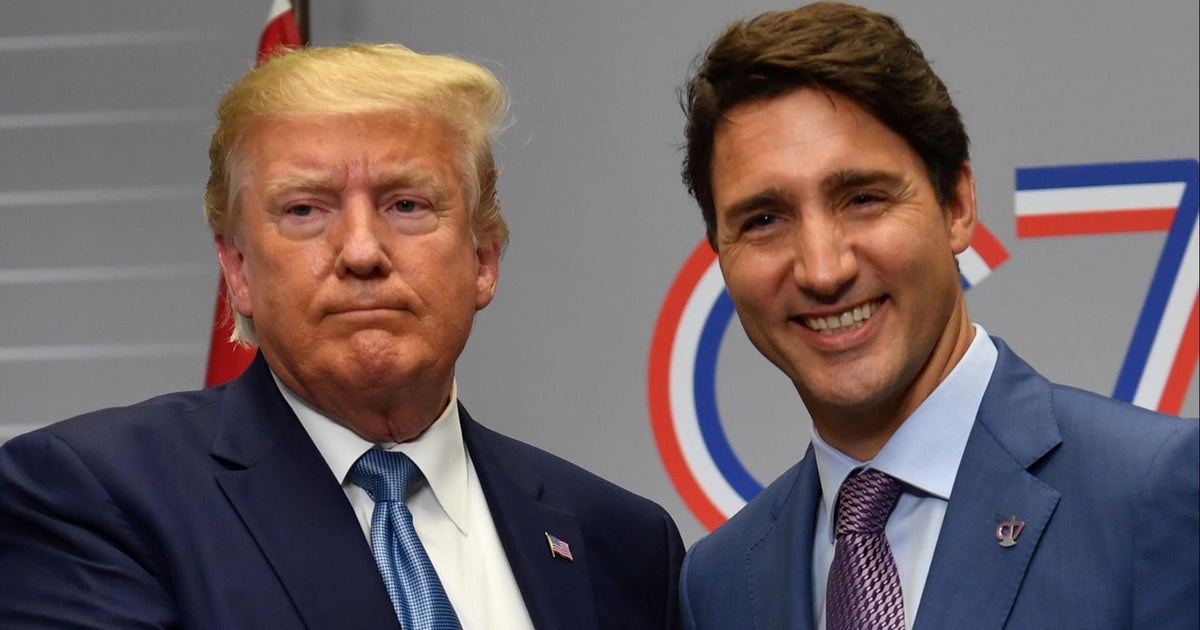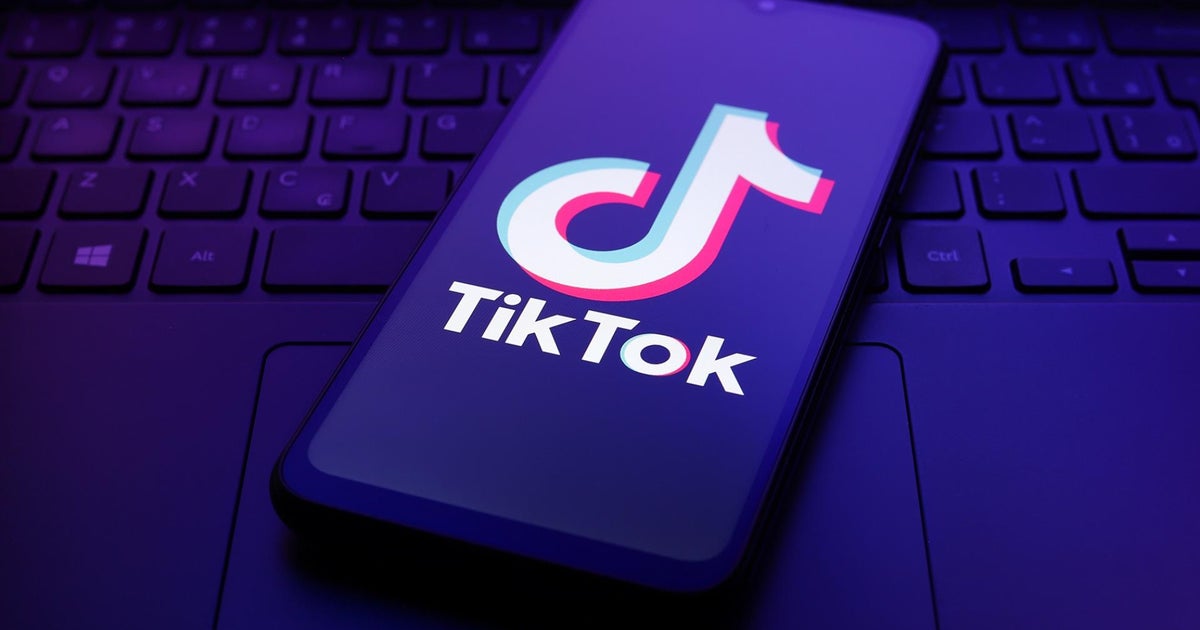CBS News
Judge holds veteran journalist Catherine Herridge in civil contempt for refusing to divulge source

A federal judge held veteran investigative reporter Catherine Herridge in civil contempt on Thursday for refusing to divulge her source for a 2017 series of Fox News stories about a Chinese American scientist who was investigated by the FBI but never charged.
U.S. District Judge Christopher Cooper in Washington imposed a fine of $800 per day until Herridge complies, but the fine will not go into effect immediately to give her time to appeal.
Cooper wrote that he “recognizes the paramount importance of a free press in our society” and the critical role of confidential sources in investigative journalism. But the judge said the court “also has its own role to play in upholding the law and safeguarding judicial authority.”
“Herridge and many of her colleagues in the journalism community may disagree with that decision and prefer that a different balance be struck, but she is not permitted to flout a federal court’s order with impunity,” wrote Cooper, who was nominated to the bench by former President Barack Obama.
A lawyer for Herridge, Patrick Philbin, declined to comment. A representative for Fox News did not immediately respond to an Associated Press email seeking comment.
“As we previously said, we are fully supportive of Catherine Herridge’s position in this case. No journalist should be punished for maintaining a source’s confidentiality,” a CBS News spokesperson told CBS News on Thursday evening. “This order finding her in contempt should be concerning to all Americans who value the role of the free press in our democracy and understand that reliance on confidential sources is critical to the mission of journalism.”
The source is being sought by Yanpin Chen, who has sued the government over the leak of details about the federal probe into statements she made on immigration forms related to work on a Chinese astronaut program.
Herridge, who was recently laid off by CBS News, published an investigative series for Fox News in 2017 that examined Chen’s ties to the Chinese military and raised questions about whether the scientist was using a professional school she founded in Virginia to help the Chinese government get information about American servicemembers.
The stories relied on what her lawyers contend were items leaked from the probe, including snippets of an FBI document summarizing an interview conducted during the investigation, personal photographs, and information taken from her immigration and naturalization forms and from an internal FBI PowerPoint presentation.
Chen sued the FBI and Justice Department in 2018, saying her personal information was selectively leaked to “smear her reputation and damage her livelihood.”
The judge had ordered Herridge in August to answer questions about her source or sources in a deposition with Chen’s lawyers. The judge ruled that Chen’s need to know for the sake of her lawsuit overcomes Herridge’s right to shield her source, despite the “vital importance of a free press and the critical role” that confidential sources play in journalists’ work.
Herridge was interviewed under oath in September by a lawyer for Chen, but declined dozens of times to answer questions about her sources, saying at one point, “My understanding is that the courts have ruled that in order to seek further judicial review in this case, I must now decline the order, and respectfully I am invoking my First Amendment rights in declining to answer the question.”
Philbin, who served as deputy White House counsel during the Trump administration, has said that forcing Herridge to turn over her sources “would destroy her credibility and cripple her ability to play a role in bringing important information to light for the public.”
Philbin also told the judge that disclosing the identity of Herridge’s sources raises national security concerns, writing in court papers that there is a “serious risk” that Chen “was involved in making information about U.S. military members available” to the Chinese.
Legal fights over whether journalists should have to divulge sources are rare, though they’ve arisen several times in the last couple decades in Privacy Act cases like the one filed by Chen. Some lawsuits have ended with a hefty Justice Department settlement in place of a journalist being forced to reveal a source, an outcome that remains possible in Herridge’s case.
In 2008, for instance, the Justice Department agreed to pay $5.8 million to settle a lawsuit by Army scientist Steven Hatfill, who was falsely identified as a person of interest in the 2001 anthrax attacks. That settlement resulted in a contempt order being vacated against a journalist who was being asked to name her sources.
CBS News
Frito-Lay recalls Lay’s Classic Potato Chips over undisclosed ingredient

Frito-Lay is recalling a limited number of 13 oz. bags of Lay’s Classic Potato Chips after being alerted by a consumer contact that the product may contain undeclared milk.
The bags of chips affected by recall were distributed to certain retail stores and e-commerce distributors in Oregon and Washington and were available for sale beginning Nov. 3, 2024.
“Those with an allergy or severe sensitivity to milk run the risk of a serious or life-threatening allergic reaction if they consume the recalled product,” the Food and Drug Administration said in the recall notice posted Thursday.
No allergic reactions related to the recall have been reported, according to the recall. Additionally, no other Lay’s products, flavors, sizes or variety packs are affected.
FDA
The recalled chips include Lay’s Classic Potato Chips, in flexible 13 oz. (368.5 grams) bags with UPC code 28400 31041, a “Guaranteed Fresh” date of 11 Feb 2025, and one of either two manufacturing codes: 6462307xx or 6463307xx.
General guidelines from the FDA advise consumers who have purchased any recalled food to dispose of the product or return it to the retailer for a full refund.
CBS News
What to know about DA Fani Willis’ removal from Trump case

Watch CBS News
Be the first to know
Get browser notifications for breaking news, live events, and exclusive reporting.
CBS News
What is the debt ceiling? Here’s why Trump wants Congress to abolish it before he takes office

Washington — President-elect Donald Trump, Vice President-elect JD Vance and billionaire Elon Musk blew up a GOP-backed deal to fund federal agencies into March, raising the pressure on Republican congressional leaders to craft a plan to avert a government shutdown just before the holidays.
In a statement Wednesday, Trump and Vance lambasted the agreement for including provisions favored by Democrats. But the incoming president and vice president also added a new, significant wrinkle to negotiations when they urged Congress to raise or abolish the debt ceiling now, instead of next year.
“Increasing the debt ceiling is not great but we’d rather do it on Biden’s watch,” Trump and Vance said in their statement. “If Democrats won’t cooperate on the debt ceiling now, what makes anyone think they would do it in June during our administration? Let’s have this debate now.”
What is the debt ceiling?
Set by Congress, the debt ceiling, or limit, is the maximum amount of money the U.S. Treasury is authorized to borrow to pay debts incurred by the federal government. Lifting the debt ceiling does not authorize new spending, but instead lets the government spend money on obligations that Congress has already been approved.
Failing to address the debt ceiling could lead the U.S. to default on its debt, which would have devastating effects on the economy. The government has never defaulted, and the Treasury typically uses accounting moves, known as “extraordinary measures,” to delay breaching the debt ceiling.
While raising the debt ceiling used to be routine, legislation addressing it has in recent years been used as leverage to force policy concessions and fuel debates over government spending.
Congress last addressed the debt ceiling in June 2023 as part of a legislative package negotiated by President Biden and then-House Speaker Kevin McCarthy. That deal suspended the debt ceiling through Jan., 1, 2025, ensuring any fight over it would take place after the 2024 elections.
The Treasury Department will likely implement extraordinary measures to stave off a default in the new year. It will also announce an “X date,” the estimated point at which the government will no longer be able to pay its obligations. The Economic Policy Innovation Center, a conservative think tank, projected in an analysis released Monday that it’s possible the debt limit will be reached by June 16.
While the Treasury Department’s use of extraordinary measures would give Congress more time to address the debt ceiling, Trump is now urging lawmakers to take action now, before he takes office.
Why does Trump want to raise the debt ceiling?
The president-elect will come into office with a legislative to-do list that includes securing the border and extending provisions of his signature Tax Cuts and Jobs Act, which was enacted in 2017 and overhauled the tax code. But a fight over the debt ceiling could complicate efforts by the Republican-led House and Senate to focus on those legislative initiatives and pass them quickly.
Trump is urging lawmakers to eliminate the debt ceiling altogether, a position that some prominent Democrats have endorsed in the past.
“Number one, the debt ceiling should be thrown out entirely,” Trump said in a phone interview Thursday with CBS News’ Robert Costa. “Number two, a lot of the different things they thought they’d receive [in a recently proposed spending deal] are now going to be thrown out, 100 percent. And we’ll see what happens. We’ll see whether or not we have a closure during the Biden administration. But if it’s going to take place, it’s going to take place during Biden, not during Trump.”
Trump separately told ABC News that “there won’t be anything approved unless the debt ceiling is done with,” indicating any spending deal to prevent a shutdown must address the debt limit.
“If we don’t get it, then we’re going to have a shutdown, but it’ll be a Biden shutdown, because shutdowns only [injure] the person who’s president,” he told ABC News.
Whether Republicans and Democrats would go along with such a plan, though, is far from clear. GOP lawmakers in both chambers have opposed raising the debt ceiling without spending reforms, and debates over the debt limit often give way to broader fights over the federal budget, which conservatives in Congress have said is bloated and should be reduced. Plus, Democrats still control the Senate and the White House.
White House press secretary Karine Jean-Pierre said in a statement Wednesday that shutting down the government would harm families and endanger services Americans rely on.
“Republicans need to stop playing politics with this bipartisan agreement or they will hurt hardworking Americans and create instability across the country,” she said. “President-elect Trump and Vice President-elect Vance ordered Republicans to shut down the government and they are threatening to do just that — while undermining communities recovering from disasters, farmers and ranchers, and community health centers.”
House Democratic Leader Hakeem Jeffries suggested Democrats would not go along with a plan pushed by Republicans to raise the debt limit.
“GOP extremists want House Democrats to raise the debt ceiling so that House Republicans can lower the amount of your Social Security check. Hard pass,” the New York Democrat wrote on the social media platform Bluesky.
Jeffries also told reporters “the debt limit issue and discussion is premature at best.”








